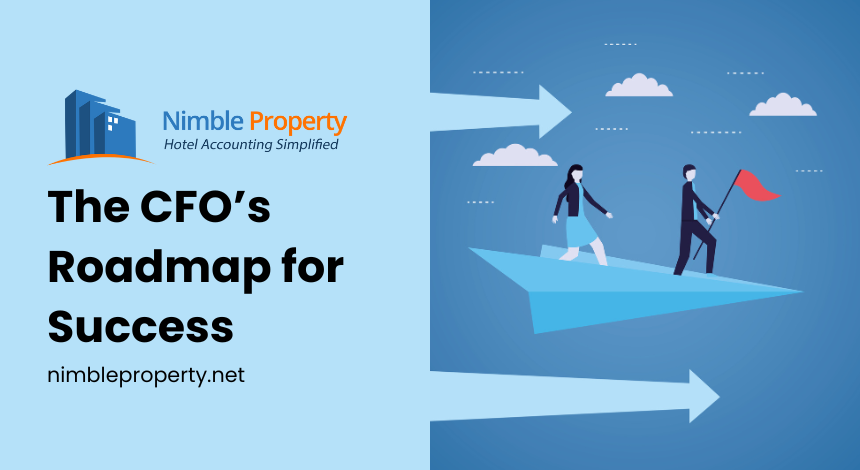When it comes to managing finances, whether for a household or a sprawling business empire, precision and strategy are key. For hotels, where every cent counts and operational efficiency is critical, having robust financial management tools is essential. This is where the Chief Financial Officer (CFO) steps in, armed with Hotel Accounting Software that simplifies and amplifies their role.
The Role of the CFO in the Hotel Industry
1. Financial Planning and Analysis
The CFO is essentially the strategic mastermind behind a hotel’s financial health. They craft detailed budgets and financial plans, gathering input from various departments and analysing market conditions. This involves not just setting a budget but also forecasting financial trends, aligning financial goals with the hotel’s broader strategic objectives, and ensuring a roadmap for sustainable growth.
2. Financial Reporting
Clear, accurate financial reporting is vital for assessing a hotel’s financial performance. The CFO ensures that reports—daily, weekly, monthly, and annual—reflect the true situation. These reports are crucial for stakeholders and help in making informed decisions. Proper accounting practices ensure that the hotel’s financial health is not only transparent but also in line with industry standards.
3. Cash Flow Management
Effective cash flow management is critical to avoid disruptions in operations. The CFO monitors the flow of money to cover expenses such as renovations, outstanding bills, and operational costs. They ensure that the hotel has sufficient liquidity to meet its financial obligations while investing in necessary improvements.
4. Cost Control
Monitoring and controlling costs is another key responsibility. The CFO evaluates the return on investments and identifies areas where costs can be reduced. This might involve renegotiating supplier contracts, optimizing inventory management, or implementing energy-saving measures. The goal is to enhance profitability without compromising on quality.
5. Revenue Management
Maximizing revenue involves more than just filling rooms. The CFO must strategize on pricing, discounts, and promotions to attract guests. Advanced Hotel Accounting Software provides interactive dashboards that display key metrics, making it easier to manage pricing strategies and optimize revenue.
6. Strategic Planning
A dynamic CFO isn’t just focused on the present but is also steering the hotel toward future growth. This involves planning global expansion, forming strategic partnerships, and exploring new revenue streams. They also need to anticipate risks and develop contingency plans to mitigate potential losses.
7. Team Leadership and Development
Effective leadership is essential for a cohesive team. The CFO ensures that the finance team is well-prepared and equipped with the right tools. Using collaborative software, they foster an environment where team members can work efficiently together, leading to smoother day-to-day operations. Nimble Hotel Accounting Software integrates seamlessly with team management tools to streamline operations.
8. Technology and Systems
Embracing technology is key to modern financial management. Hotel Accounting Software automates tasks like invoicing and report generation, which not only saves time but also ensures compliance with regulatory requirements. Data-driven insights from these systems enhance operational efficiency and provide actionable intelligence.
Overcoming Common Challenges with AI-Enabled Hotel Accounting Software
1. Revenue Management
Hotels generate income from multiple sources, including room bookings, events, dining, and other services. Managing and accurately recognizing this revenue can be complex. Implementing a robust revenue management system that integrates with your PMS ensures accurate tracking and reporting. Using accrual accounting principles helps recognize revenue as it’s earned, not just when received.
2. Expense Tracking and Control
Managing a hotel’s expenses involves dealing with numerous operational costs, from staffing to utilities. Overspending can erode profitability. To tackle this, establish a comprehensive expense tracking system and use Hotel Accounting Software to monitor spending in real-time. Set clear expense approval protocols and review records regularly to identify and address discrepancies. Cost-saving strategies such as bulk purchasing and energy-efficient practices can also help.
3. Compliance and Regulatory Reporting
Navigating the maze of state and federal regulations is a challenge for many hoteliers. Keeping up with financial reporting requirements and tax laws can be time-consuming. Investing in compliance management software and working with legal and accounting professionals ensures accurate and timely reporting. Regular audits and internal controls help maintain adherence to regulations.
4. Technology Integration and Data Management
Integration is crucial for seamless operations. Choose Hotel Accounting Software that works well with your PMS, payroll systems, and inventory management tools. This ensures smooth data flow and reduces the risk of errors. Look for software that offers industry-specific solutions to address the unique needs of hotel operations.
Conclusion:
In the business hospitality industry, having the right tools can make all the difference. Nimble Property offers a powerful solution for hotel accounting, trusted by leading industry players. With its AI-enabled features, it helps CFOs tackle financial challenges effectively and streamline operations. Embrace the future of financial management and set your hotel on a path to greater stability and growth.
Register and See a Demo for Free

